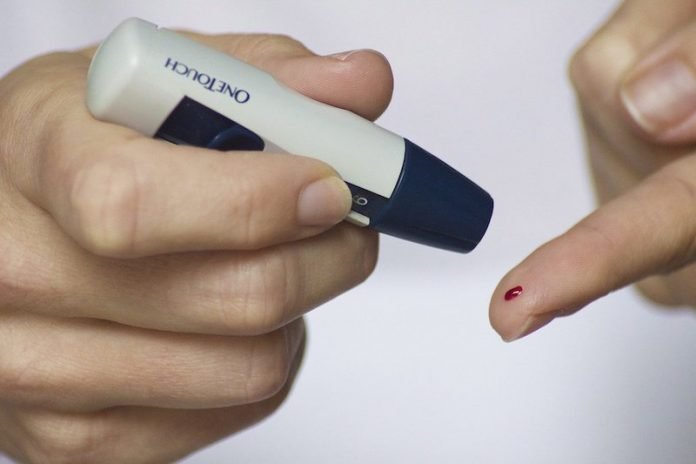
In a new study from Anglia Ruskin University, researchers found that patients’ self-management of their diabetes has suffered during the COVID-19 pandemic, particularly during periods of self-isolation.
They surveyed 679 adult patients between May and November 2020 and found that self-isolation was linked to greater fluctuations of blood glucose levels, reduced access to a healthy diet and reduced access to medicines.
The survey included people with any type of diabetes.
The need to self-isolate due to COVID-19 infection was found to be the single most important factor influencing variables investigated during the study.
The likelihood of fluctuations in blood glucose levels was found to be 1.8 times higher among those who needed to self-isolate than in those who did not.
A total of 35.6% of respondents reported that their blood glucose levels fluctuated more during the COVID-19 pandemic than in the period before.
In addition, 13.8% of participants reported that their access to medicines had worsened during the pandemic.
The likelihood of access to medicine being worse in those needing to isolate was 1.9 times higher than in those who did not.
Patients on insulin treatment were over twice as likely to have reduced access to diabetes medicine compared to those who were not on insulin treatment.
Fluctuations in blood glucose levels among diabetics can lead to damage to the eyes and other organs.
The team says people with diabetes are at a greater risk of serious complications from COVID-19. Self-management of diabetes is therefore of paramount importance.
The study showed a concerning association between self-isolation and blood sugar fluctuations, reduced access to medicines, lower levels of physical activity and a less healthy diet.
All these elements are crucial to the successful self-management of diabetes.
Given that access to health services was limited during the pandemic, it is of vital importance that people are able to self-manage their condition.
If you care about diabetes, please read studies about prediabetes diagnosis not useful in older people and findings of how heart patients with diabetes can exercise more safely.
For more information about diabetes and your health, please see recent studies about making coffee this way may help prevent type 2 diabetes and results showing that why some people have dangerous diabetes complications.
The study is published in the journal Diabetology and Metabolic Syndrome. One author of the study is Professor Shahina Pardhan.
Copyright © 2021 Knowridge Science Report. All rights reserved.



